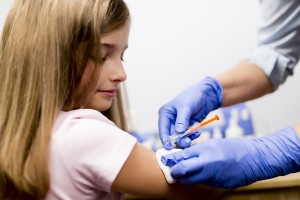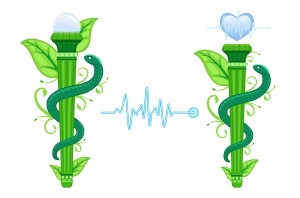In wake of the recent debate regarding whether to vaccinate or not, many people would assume that Naturopathic Doctors (NDs) in general, being the glorified hippies and witch-doctors (please note the hint of sarcasm here) that they are, would be against vaccinations. I wrote this blog to clear the air on what stance Naturopathic Doctors might take on this debate (Please note that I have attempted to be as un-bias as possible in the writing of this article, but if my opinions have come through, please be aware that they are merely my opinions and do not reflect that Naturopathic profession as a whole).
Recently, the Dean of the Canadian College of Naturopathic Medicine released the following statement to all of the interns, including myself, that work at the Robert Schad Naturopathic Clinic:
“As many of you may have noted, there is considerable discussion in the media these days with respect to childhood vaccination. Given that childhood vaccination is discussed in a variety of areas in the curriculum, students may not feel as clear about our official curriculum position on vaccinations as they should be. Specifically, although all medical treatment should be administered in a manner that reflects the individual needs of the patient, CCNM is supportive of childhood vaccinations in general, including the recommended vaccination schedules. Interns are reminded that we have a policy on this in our Clinic Standards Manual 2014/15:
2.1 Vaccination is a population‐based strategy to protect a whole population or defined risk group or an individual against significant infectious diseases. In addition to vaccination, sanitation, hygiene, nutrition and lifestyle choices can also play a role in the prevention of contagious diseases as well as limiting their spread.
2.2 While it is recognized that vaccinations can be associated with self‐limiting (i.e., minor) adverse reactions, and even rare severe adverse reactions, the safety and benefits of vaccinations in reducing risks of diseases that were previously widely prevalent and caused substantial morbidity and mortality, are vastly superior to any other method currently available. Currently, no other strategies have been shown to offer equal protection to either the population or the individual.
2.3 It is the responsibility of the health‐care provider to report adverse effects to vaccinations and educate their patients. Health‐care providers at CCNM and CCNM teaching clinics should thoroughly review the most current version of the guidelines set out in the Canadian Immunization Guide which includes educational material as well as forms on how to report suspected or confirmed adverse reactions to vaccinations.
2.4 Some naturopathic doctors prescribe homeopathic remedies and/or other naturopathic treatments as alternatives to vaccinations.
2.5 The use of homeopathic remedies and/or other naturopathic treatments for the purposes described in 2.4 is not permitted at any of the CCNM teaching clinics.
2.6 The use of homeopathic remedies and/or other naturopathic treatments to provide immune support is acceptable.”
This statement may come as a surprise to most people, thinking that Naturopathic Doctors would be strongly opposed to vaccinations, because it’s a conventional means of treating. Naturopathic Doctors are not opposed to conventional medicine. As I tell many patients, there is a time and a place for antibiotics, surgery, and even, anti – depressants [gasp] to name a few. In the case of vaccines, they were created as a public health measure to protect against different diseases. That being said, some may be necessary and some may not be based on individual preference and opinion. It is the job of your health care provider to help you make an informed decision as to what you feel your family needs for their health. This is where informed consent comes in.
The bottom line to this discussion is simple: patient education and informed consent. Informed consent is at the heart of all medical procedures and needs to be obtained in all circumstances. Informed consent involves informing patients of all risks, benefits, complications, and alternatives to any medical endeavor. Unfortunately with the lack of time spent with health care providers, it can be challenging for parents to become completely informed as to what their options really are and the truth behind all of the research that exists in favour of or opposed to different procedures. The clear need that stands out in this debate of pro-vaccine versus anti – vaccine is that there needs to be more patient education in regards to their choices. One does not have to strictly get all the vaccines or no vaccines at all. You have a choice and you should feel empowered to choose what is best for your family and community. Informed decision making does not just involve vaccinations, but all other medical procedures as well. Naturopathic Doctors may have individual opinions on the issue, but the common thread that connects all is pro – informed-decision-making.
Have you benefitted from reading this blog? Know someone that would benefit as well? Share, Like, Comment, or Tweet this article, and let me know what you think.
Some of the information provided above may not be appropriate for everyone, please consult with your doctor before trying any of the above. If you are interested in Naturopathic Medicine and wanting a different approach to your health care needs, please book an appointment with Elisha Cook at the RSNC (416-498-9763), and let me help you achieve your health goals.


